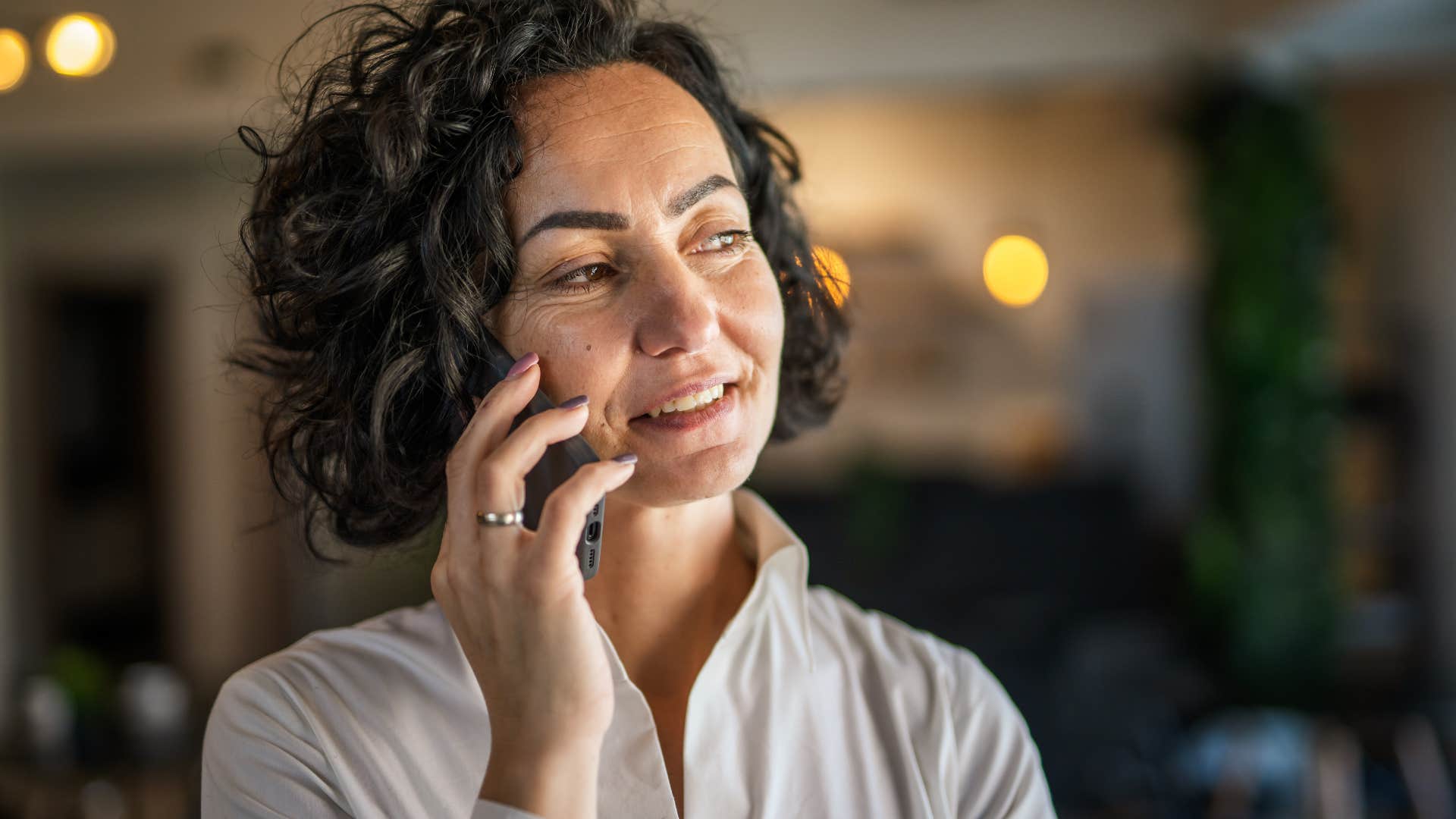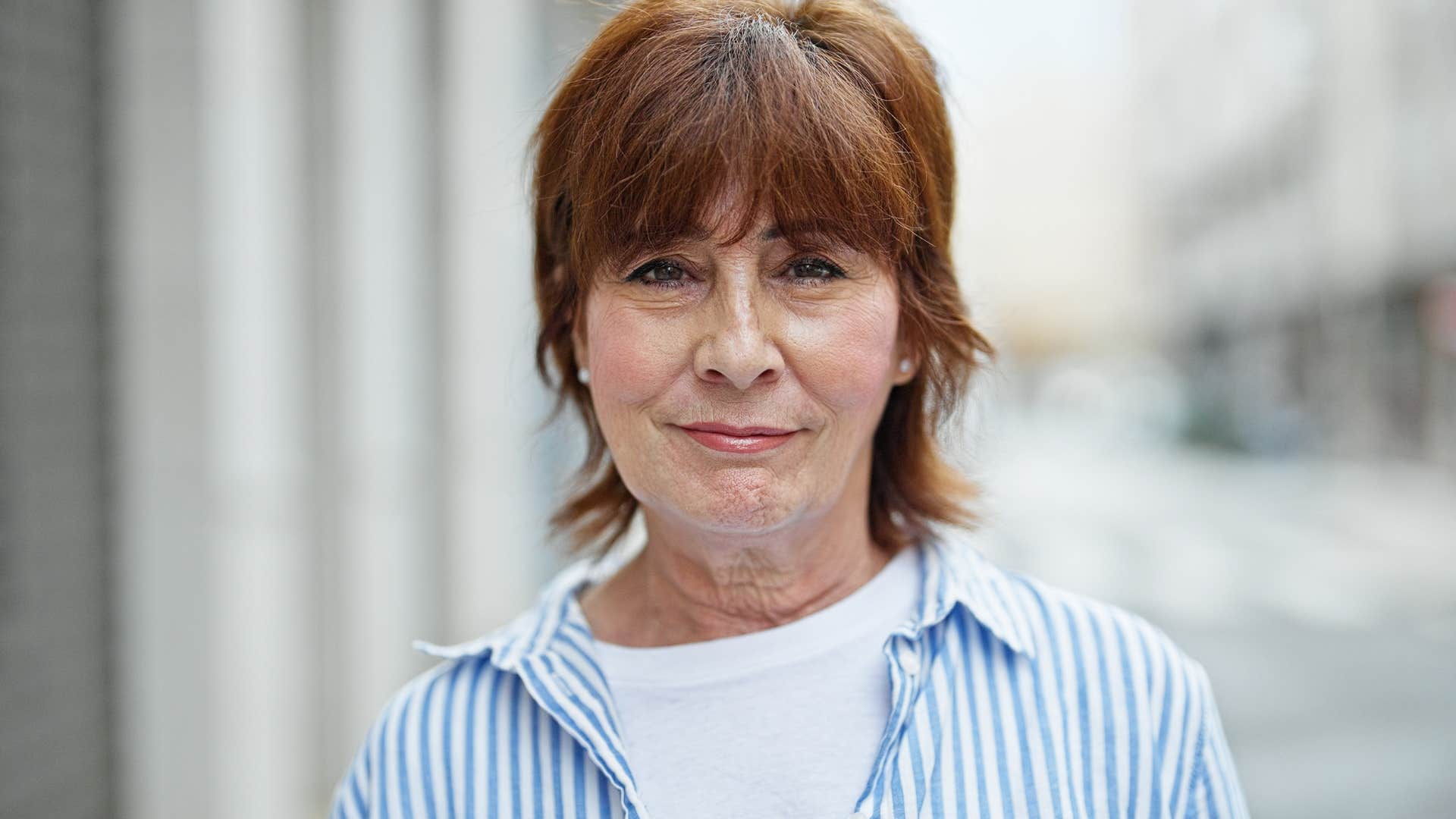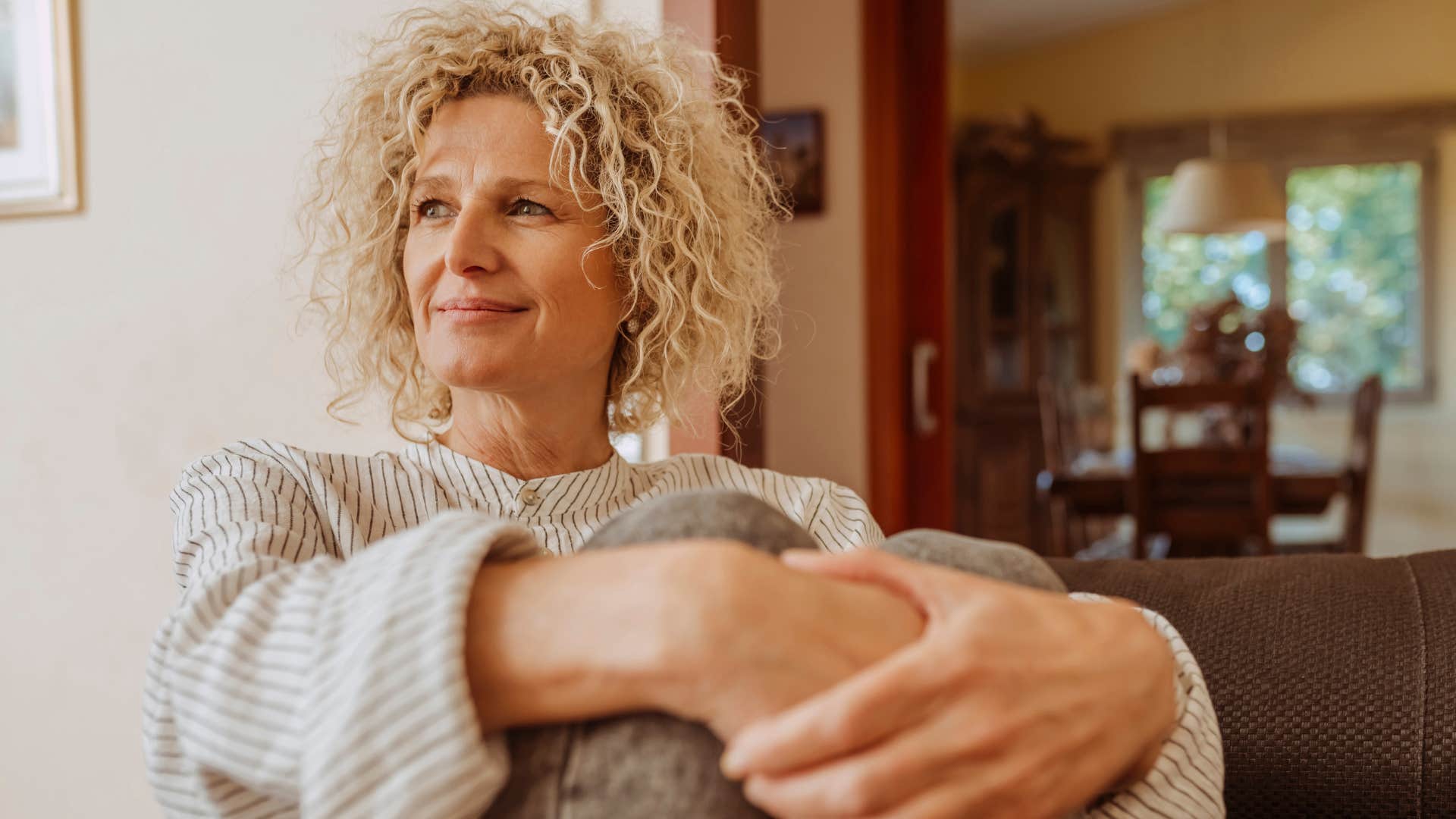People Who No Longer Care About Being Liked As They Get Older Usually Have These 11 Reasons
Once people reach a certain age, they're no longer fueled by external validation or acceptance.
 Perfect Wave | Shutterstock
Perfect Wave | Shutterstock While getting older comes with its struggles, research has shown that self-esteem generally increases as people age. Most of us become more self-assured as we encounter a variety of life experiences, develop deep connections, and gain a stronger sense of who we are, what we want, and what we do and do not care about.
People who no longer care about being liked as they get older usually have several reasons, but a strong sense of self lies at the center. They care less about adhering to the arbitrary rules society imposes on them and instead lead their lives guided by their own beliefs, values, and experiences at the forefront of their minds. The experience of getting older can be nuanced and complex, but without the burden of needing attention or approval from everyone else, it can be absolutely empowering.
People who no longer care about being liked as they get older usually have these 11 reasons
1. They know their priorities
 Miljan Zivkovic | Shutterstock.com
Miljan Zivkovic | Shutterstock.com
Whether it’s a stable career, family responsibilities, or a healthy routine, many people who no longer care about being liked or appeasing others as they age simply have their priorities straight. As a study published by Cambridge University Press suggests, as people, specifically women, get older, they care less about curating a specific physical appearance or demeanor for others and instead prioritize the things that matter most to them personally.
So, when they’re faced with a choice, no matter how clear it is, of whether to appeal toward the masses or fulfill themselves, they’re going to prioritize things that serve in their best interest.
2. They have their communities
 Monkey Business Images | Shutterstock.com
Monkey Business Images | Shutterstock.com
From strong, intimate partnerships to a great circle of friends or a community of people they trust, many people who don’t care about being liked as they get older aren’t trying to appeal to others for connection, conversation, or a sense of belonging. They already have relationships, both with themselves and others, that they invest time and energy into maintaining, so they’re less pressured by feelings of loneliness and isolation to seek attention and validation from others.
Of course, stepping out from the pressures of external validation is no easy feat. According to a study published in the Sage Open Aging journal, many people experience loneliness later in life as a result of losing community and a sense of belonging. However, for people who have stable relationships that provide the support they need, focusing inward and on the people whose opinions actually matter to them can be much easier and more rewarding.
3. They’re secure in their identity
 Krakenimages.com | Shutterstock.com
Krakenimages.com | Shutterstock.com
Even as they age, people who no longer care about being liked tend to boast a higher self-esteem than their peers. They’re comfortable with aging and less influenced by societal pressures to look and act a certain way, so when they interact with and invest energy into others, it’s because they want to, not because they feel pressured to seek their validation.
As a study published in the Psychology and Aging journal explains, people’s life satisfaction and self-confidence tend to decrease alongside societal pressures to look younger with age, especially if they’re not secure in their own identity or self-assured. However, people who no longer care about being liked as they get older aren’t just comfortable with their own identity. They’re also comfortable with all the nuances and changes aging brings.
4. They have personal interests and hobbies
 SYC PROD | Shutterstock.com
SYC PROD | Shutterstock.com
According to a 2017 study on mindfulness, older adults who intentionally focus on their personal lives, relationships, and interests are generally happier and healthier than those who live for external validation and attention.
They’re present in their own lives, not worried about what everyone else is doing and thinks of them, so they can focus on things like hobbies and habits that fulfill them.
5. They value authenticity
 Kinga | Shutterstock.com
Kinga | Shutterstock.com
Part of the reason people are so intrigued by authenticity is because it’s rare. Especially amid societal norms, pressures to fit in, and the ever-evolving trend cycle, it’s become harder and harder for people to craft their own personal identity without appealing to others.
However, people who no longer care about being liked or following societal expectations tend to embrace and value authenticity above all else. They’re self-assured, spend time building a strong relationship with themselves, and investing in hobbies and activities that bring them joy. It’s their “realness,” like a study published in the Journal of Research in Personality suggests, the ability to make decisions and craft a life with their best interests in mind, that builds their authentic sense of self.
6. They don’t appreciate conformity
 shurkin_son | Shutterstock.com
shurkin_son | Shutterstock.com
While others may try to fit in with their peers, follow trends, and live their lives in accordance with others' opinions and beliefs, individuals who don’t care about being liked as they age tend to reject conformity. They’re not only authentic, they spend a lot of time and energy building a relationship with themselves, one that guides their life decisions, values, and relationships.
As psychologist Jessica Koehler explains, conformity is a “trap” in our culture that urges people to give up pieces and parts of themselves to fit in with a societal whole that damages their well-being, self-esteem, and confidence.
7. They don’t compete with others
 Ground Picture | Shutterstock.com
Ground Picture | Shutterstock.com
Experts from the University of Colorado argue that healthy competition is possible and sometimes even healthy for bolstering motivation, productivity, and self-esteem, but when it’s weaponized to encourage people to seek validation and acceptance, it’s often at the expense of their well-being.
People who no longer care about being liked as they get older usually would prefer to craft goals, values, and expectations that align with their own purpose, rather than trying to one-up or assert misguided superiority over others.
8. They’re resilient
 carlesmiro | Shutterstock.com
carlesmiro | Shutterstock.com
Many people who are naturally resilient have actually built their work ethic, motivation, and self-esteem from handling hardship and navigating adversity, as a study published in the Frontiers in Psychiatry journal suggests.
They are confident in their ability to respond to stress, handle a crisis, and look out for their own interests from an independent perspective without appealing to other people, because they’ve done it over and over again. Especially as they get older and have years of life experience to build their self-esteem and resilience, they’re less likely to care about what everyone else thinks, because they’re autonomous, independent, and self-assured.
9. Their time feels more valuable
 Krakenimages.com | Shutterstock.com
Krakenimages.com | Shutterstock.com
At a certain point in your life, especially as you build self-esteem and experience getting older, it becomes harder to avoid the inevitability of passing time. You start to take a closer look at the things that’ve become mundane in your life in favor of more fulfilling and exciting endeavors.
From relationships to career choices and even leisure time, people who no longer care about being liked are choosing to prioritize habits and experiences that help them to make the most of the time they have left.
10. They’re sick of being disappointed
 Anemone | Shutterstock.com
Anemone | Shutterstock.com
Whether it’s a history of toxic relationships, unresolved family traumas, or battles with self-esteem, many people who no longer care about being liked by others are sick of being disappointed. They’ve been stuck in a perpetual cycle of appealing to others and being let down for years. Still, they’re now focused on themselves, their own needs, and investing in relationships with people who see them for who they truly are.
Of course, breaking free from the cycle of mistreatment and toxic relationships is not an easy feat. It takes perseverance, discomfort, and discipline to achieve. But with the proper healthy habits, mindsets, and intentional boundaries, it’s possible.
11. They care more about respect
 stockfour | Shutterstock.com
stockfour | Shutterstock.com
People who no longer care about being liked know that there’s a difference between likeability and respect. They’re still setting boundaries, expecting mutual respect in relationships, and caring for themselves to form self-respect. Still, they’re not tolerating mental health struggles for the sake of appealing to everyone.
Even if they’ve been people-pleasers in the past, appealing to others and putting their own needs aside for the comfort of others, they now know how to set boundaries and practice acquiring respect, rather than attention, validation, or acceptance from others.
Zayda Slabbekoorn is a staff writer with a bachelor’s degree in social relations & policy and gender studies who focuses on psychology, relationships, self-help, and human interest stories.

